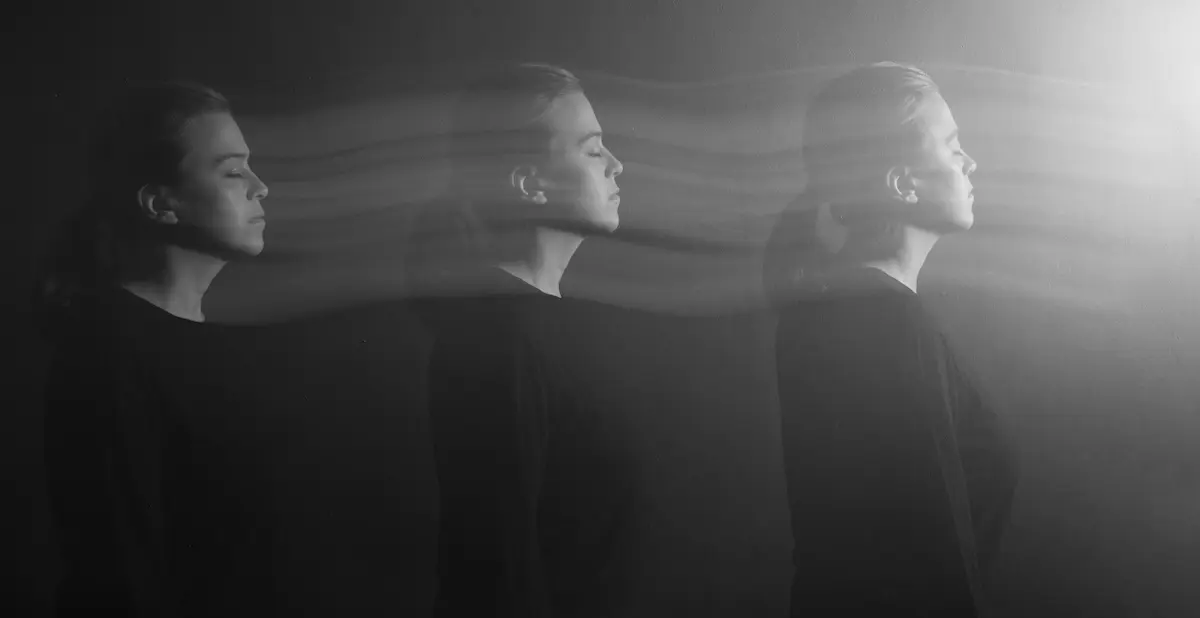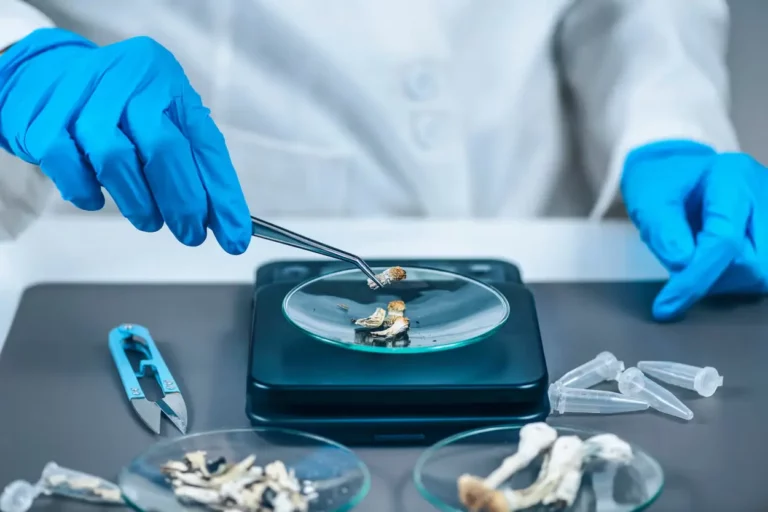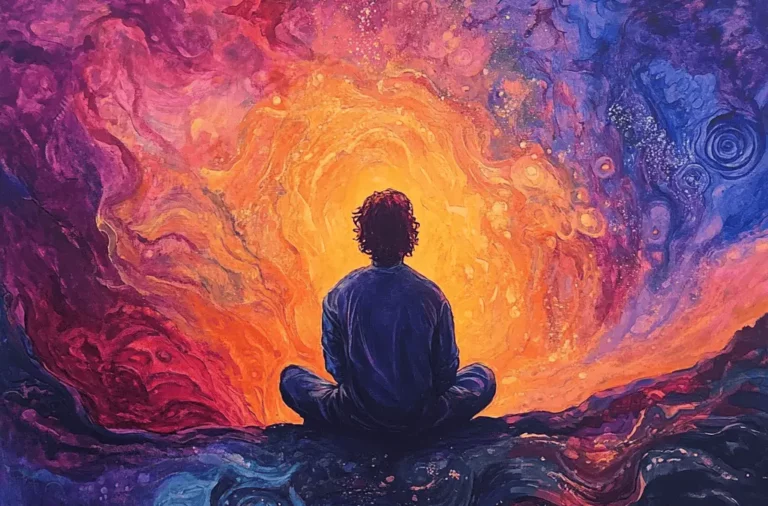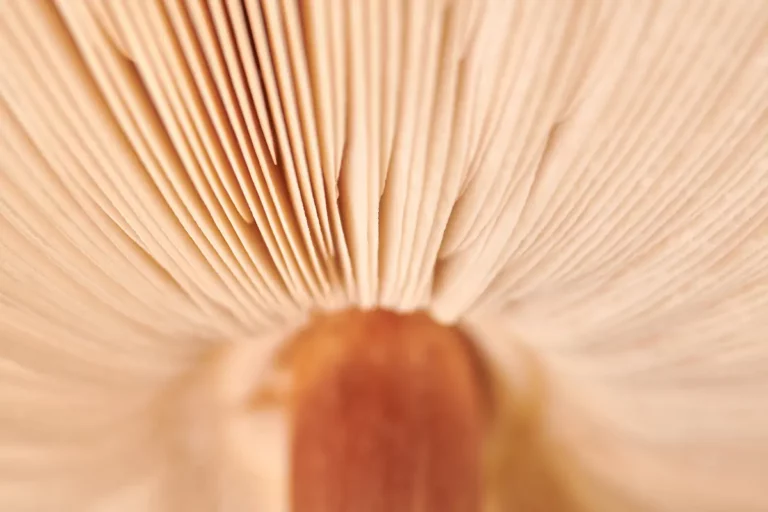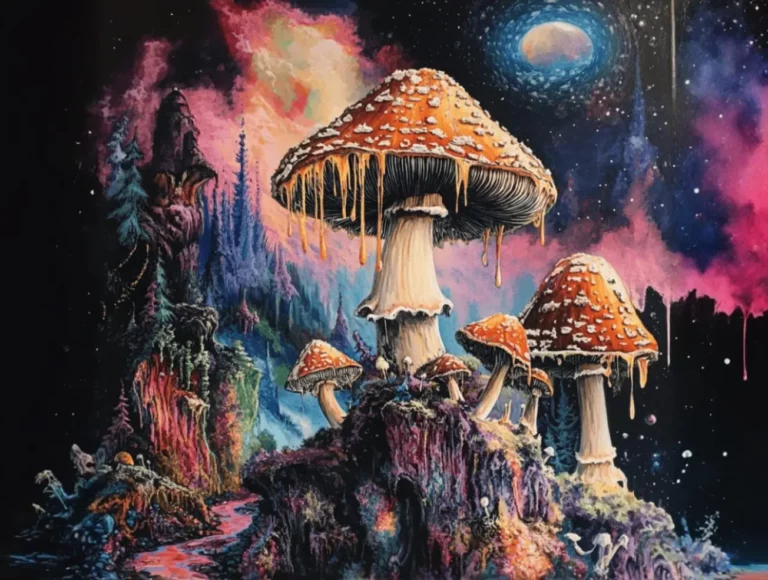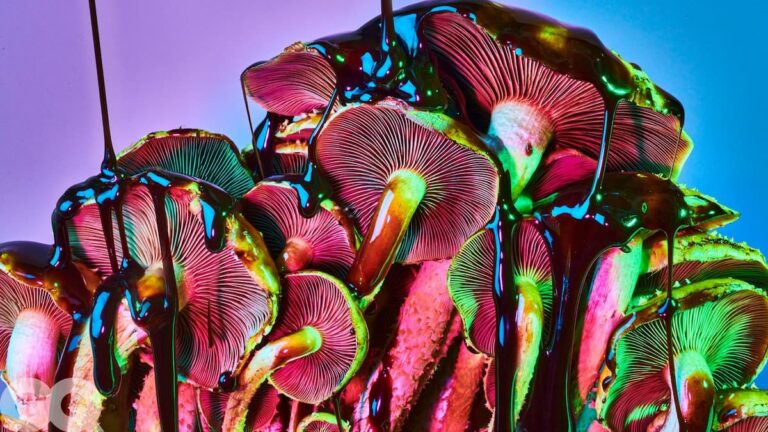Emerging Paths in Depression Treatment: The Psilocybin Perspective
As discussed in our last blog post, magic mushrooms are resurging as a research topic due to their therapeutic potential. In the last post we briefly touched on subtopics of research such as the use of psilocybin to treat addiction or mental illnesses. With this post we aim to discuss the research being conducted using psilocybin for depression. If you are interested, feel free to return to the previous blog post for an introduction about research on psilocybin and institutions that are shedding light on the profound therapeutic potential of this once misunderstood substance.
The Mental Health Crisis: Depression
Major depression is a major challenge that affects countless people. This condition isn’t just feeling sad for a few days; it can be a persistent darkness that clouds thoughts, emotions, and everyday life. It can be a relentless battle that affects work, relationships, and even basic daily activities. It’s a leading cause of disability worldwide, affecting people of all ages and backgrounds.
Some have found relief through traditional treatments and psychological support like therapy and antidepressant medications. These methods have certainly been a lifeline for some, providing tools to manage and alleviate symptoms. However, for others, these approaches only scratch the surface, leaving them still struggling to find lasting relief such as with those who have treatment resistant depression.
Psychiatry has yet to find better solutions or treatment for major depressive disorder. This has led researchers to explore new avenues, including the study of psilocybin. This compound, found in certain types of mushrooms, is showing promise in the treatment of depression. Through rigorous scientific investigation, there’s hope that this research could open up new doors for those who haven’t found the help they need through conventional means.
What is Psilocybin?
Psilocybin is a naturally occurring psychedelic compound found in certain types of mushrooms, commonly known as “magic mushrooms.” For centuries, indigenous cultures have used these mushrooms for spiritual and healing purposes. Now, modern science is catching up to the wisdom of these traditions, unlocking the potential of psilocybin in controlled, therapeutic settings.
The John Hopkins Psilocybin Research
Among the vanguards of psilocybin research stands Johns Hopkins University, a name synonymous with groundbreaking studies in the field. Their research, led by esteemed scientists such as Dr. Roland Griffiths, has been pivotal in reshaping our understanding of psychedelic-assisted therapy.
One of the landmark studies conducted at Johns Hopkins involved administering psilocybin to individuals with treatment-resistant depression. The results were nothing short of remarkable. Patients reported profound shifts in their mental states, often describing feelings of interconnectedness, peace, and a newfound sense of clarity. Importantly, these effects were not fleeting; many participants experienced a sustained improvement in mood and decrease in depression symptoms long after the initial session. Reflecting potential efficacy of psilocybin.
While the work at Johns Hopkins has garnered significant attention, it is essential to recognize that psilocybin research is a collaborative effort across multiple institutions worldwide. From the Multidisciplinary Association for Psychedelic Studies (MAPS) to the Imperial College London, researchers are delving deep into the therapeutic potential of this psychedelic compound.
Psilocybin-Assisted Therapy: A Paradigm Shift
Central to the promise of psilocybin is its ability to catalyze profound shifts in consciousness. In the context of therapy, this means that patients can confront deep-seated traumas, negative thought patterns, and existential fears with newfound clarity and courage.
Unlike traditional antidepressants that require daily intake, psilocybin-assisted therapy often involves only a few sessions under the guidance of trained therapists. These sessions, accompanied by preparatory and integrative therapy, create a holistic framework for healing.
How Psilocybin Affects the Brain: Opening Doors to New Perspectives
When someone ingests psilocybin, a compound found in certain mushrooms, it starts working on specific parts of the brain, mainly the serotonin receptors known as 5-HT2A receptors. This interaction sets off a series of changes in how we perceive things, our moods, and even how we think.
Studies using brain imaging have revealed something fascinating: psilocybin creates a state where different parts of the brain start talking to each other more than usual. Normally, these brain regions work somewhat independently, but under psilocybin’s influence, they connect more closely.
This boost in connections, along with what is often called “ego dissolution,” seems to be a key player in why psilocybin can be helpful for therapy. Imagine it like breaking down the walls of your usual ways of thinking. It’s as if the rigid patterns that keep us stuck in depression or negative thought loops are temporarily softened or even dismantled. This temporary opening up of the mind allows new perspectives to flood in, offering a chance to break free from the grips of depression.
Illuminating Success Stories:
Personal Journeys of Healing
While the science of psilocybin research paints a compelling picture, it is perhaps the stories of individuals that truly capture its transformative power. Across various studies, participants have shared accounts of profound healing and personal growth.
One such story is that of Sarah, a 42-year-old woman who had battled depression for over a decade. Traditional treatments offered little relief, and she found herself in a cycle of despair. Upon participating in a psilocybin-assisted therapy session, Sarah experienced a profound sense of peace and connectedness. “It was like seeing the world in color again,” she recalls. Months later, Sarah continues to thrive, her depression no longer holding her hostage.
Sarah’s story is just one among many. There are countless others who have found new light through psilocybin-assisted therapy. People from all walks of life, battling their own struggles, have shared similar experiences of profound change and newfound hope. Psilocybin has opened doors for them, offering a chance to break free from the shadows of depression and embrace life with renewed vigor.
Psilocybin Studies for Depression:
A Summary of Promising Research
In recent years, a growing body of research has explored the potential of psilocybin—the psychoactive compound found in certain mushrooms—as a treatment for depression. Let’s delve into some key studies that shed light on this intriguing area of mental health research:
Psilocybin Produces Substantial and Sustained Decreases in Depression in Patients with Life-Threatening Cancer (2016)1
Summary:
This groundbreaking study, led by Roland Griffiths and his team at Johns Hopkins University, explored the effects of psilocybin on individuals with life-threatening cancer diagnoses. Participants experienced significant reductions in depression and anxiety, with effects lasting up to six months after just a single dose of psilocybin.
Psilocybin with Psychological Support for Treatment-Resistant Depression (2016)2
Summary:
Researchers at Imperial College London conducted a study focusing on the impact of psilocybin on treatment-resistant depression. Patients who had not responded to conventional treatments showed remarkable improvements in mood after receiving psilocybin therapy. Brain imaging also revealed changes in neural connectivity associated with antidepressant effects.
Single-Dose Psilocybin Treatment for Major Depressive Disorder (2022)3
Summary:
This study is a double-blind randomized clinical trial explored the potential of psilocybin in combination with psychotherapy for patients with moderate to severe depression. The psilocybin-assigned group showed an absolute decrease in symptom severity compared to their baseline scores. The findings pave the way for more integrated treatment methods.
Single-Dose Psilocybin Treatment for Major Depressive Disorder (2023)4
Summary:
A very similar study to the previous investigated the use of psilocybin-assisted therapy for major depressive disorder (MDD). Results indicated significant reductions in depressive symptoms, and participants reported a newfound sense of well-being and increased emotional connection.
Psilocybin for a Treatment Resistant Episode of Major Depression (2022)5
Summary:
Goodwin et. al from University of Oxford also conducted a double blind phase 2 trial of psilocybin for depression. There were three groups where: 79 participants were assigned to the 25mg dose, 75 to the 10mg dose and 79 participants were assigned to the 1mg group. They concluded that there were reduced scores in depressive symptoms in the highest dose but not in the two lower dose groups after 3 weeks. It should be noted here that the researchers also claimed that though there was a decrease, it came with some adverse effects.
Single-Dose Synthetic Psilocybin With Psychotherapy for Treatment-Resistant Bipolar II Major Depressive Episodes (2023)6
Summary:
This is a study that aimed to research the efficacy of psilocybin with bipolar disorder type two. These patients experience frequently occurring depressive episodes. The hope is that psilocybin may be a fast acting anti-depressant for these individuals. 19 participants with BDII (between ages 18 and 65) that were experiencing a longer than 3-month depressive episode were included in the experiment. All participants were given a 25mg dose of psilocybin and all received therapy sessions pre, during and post-session.
The researchers used two questionnaires for measurements that reflect depression scores. They noticed lower scores at the three week mark for these patients. 12 participants met a 50% decrease in score on one of these depression questionnaires and 11 participants even went into remission.
Meta-Analysis of Psilocybin Studies (2020)7
Summary:
A meta-analysis pooling data from multiple psilocybin studies for depression found consistent evidence supporting its efficacy. The analysis highlighted the potential of psilocybin to not only alleviate depressive symptoms but also enhance overall well-being and quality of life.
The Future of Psilocybin Therapy for Depression
These studies offer a glimpse into the promising future of psilocybin therapy for depression. While more research is needed to fully understand its mechanisms and long-term effects, the results so far are encouraging. As attitudes towards psychedelic medicine continue to evolve, psilocybin stands out as a potential breakthrough in the treatment of depression, offering hope to those who have not found relief through traditional methods.
Legal and Ethical Challenges
As promising as psilocybin research may be, significant hurdles remain on the path to widespread acceptance and accessibility. Legal and regulatory frameworks vary widely across jurisdictions, presenting challenges for researchers and patients alike. Additionally, the stigma surrounding psychedelics, rooted in decades of misinformation, continues to cast a shadow over legitimate scientific inquiry.
Beyond Today: Prospects for Psilocybin Research
In the face of these challenges, the momentum behind psilocybin research continues to grow. Researchers are exploring new avenues, from microdosing protocols to combination therapies that synergize the effects of psilocybin with other treatments.
Moreover, public awareness and advocacy are playing pivotal roles in shifting perceptions around psychedelics. Organizations such as the Psychedelic Science Funders Collaborative and the Beckley Foundation are actively supporting research and education efforts, paving the way for a more enlightened approach to mental health.
Innovations in Mental Health
In the intricate dance of science and human experience, psilocybin research is a testament to our capacity for innovation and compassion—a reminder that healing lies not just in molecules but in the profound connections we forge with ourselves and each other.
As we navigate the complexities of depression and mental health, let us hold onto this vision of possibility. Let us honor the courage of researchers, the resilience of patients, and the wisdom of ancient traditions that have long revered the healing powers of nature.
Dr. Roland Griffiths said it best: “The future is so exciting. We’re on the edge of a big change in mental health care.” With each study and every story of healing, we move closer to a future where hope shines bright—a future where depression loses its grip, and the promise of better days guides us forward.
Psilocybin Retreat – Apply now!
Sources:
- Griffiths, R. R., Johnson, M. W., Carducci, M. A., Umbricht, A., Richards, W. A., Richards, B. D., Cosimano, M. P., & Klinedinst, M. A. (2016). Psilocybin produces substantial and sustained decreases in depression and anxiety in patients with life-threatening cancer: A randomized double-blind trial. Journal of psychopharmacology (Oxford, England), 30(12), 1181–1197.
https://doi.org/10.1177/0269881116675513 - Carhart-Harris, R. L., Bolstridge, M., Rucker, J., Day, C. M., Erritzoe, D., Kaelen, M., Bloomfield, M., Rickard, J. A., Forbes, B., Feilding, A., Taylor, D., Pilling, S., Curran, V. H., & Nutt, D. J. (2016). Psilocybin with psychological support for treatment-resistant depression: an open-label feasibility study. The lancet. Psychiatry, 3(7), 619–627.
https://doi.org/10.1016/S2215-0366(16)30065-7 - von Rotz, R., Schindowski, E. M., Jungwirth, J., Schuldt, A., Rieser, N. M., Zahoranszky, K., Seifritz, E., Nowak, A., Nowak, P., Jäncke, L., Preller, K. H., & Vollenweider, F. X. (2022). Single-dose psilocybin-assisted therapy in major depressive disorder: A placebo-controlled, double-blind, randomised clinical trial. EClinicalMedicine, 56, 101809.
https://doi.org/10.1016/j.eclinm.2022.101809 - Raison, C. L., Sanacora, G., Woolley, J., Heinzerling, K., Dunlop, B. W., Brown, R. T., Kakar, R., Hassman, M., Trivedi, R. P., Robison, R., Gukasyan, N., Nayak, S. M., Hu, X., O’Donnell, K. C., Kelmendi, B., Sloshower, J., Penn, A. D., Bradley, E., Kelly, D. F., Mletzko, T., … Griffiths, R. R. (2023). Single-Dose Psilocybin Treatment for Major Depressive Disorder: A Randomized Clinical Trial. JAMA, 330(9), 843–853.
https://doi.org/10.1001/jama.2023.14530 - Goodwin, G. M., Aaronson, S. T., Alvarez, O., Atli, M., Bennett, J. C., Croal, M., DeBattista, C., Dunlop, B. W., Feifel, D., Hellerstein, D. J., Husain, M. I., Kelly, J. R., Lennard-Jones, M. R., Licht, R. W., Marwood, L., Mistry, S., Páleníček, T., Redjep, O., Repantis, D., Schoevers, R. A., … Malievskaia, E. (2023). Single-dose psilocybin for a treatment-resistant episode of major depression: Impact on patient-reported depression severity, anxiety, function, and quality of life. Journal of affective disorders, 327, 120–127.
https://doi.org/10.1016/j.jad.2023.01.108 - Aaronson, S. T., van der Vaart, A., Miller, T., LaPratt, J., Swartz, K., Shoultz, A., Lauterbach, M., Sackeim, H. A., & Suppes, T. (2023). Single-Dose Synthetic Psilocybin With Psychotherapy for Treatment-Resistant Bipolar Type II Major Depressive Episodes: A Nonrandomized Controlled Trial. JAMA psychiatry, e234685. Advance online publication.
https://doi.org/10.1001/jamapsychiatry.2023.4685 - Vargas, A. S., Luís, Â., Barroso, M., Gallardo, E., & Pereira, L. (2020). Psilocybin as a New Approach to Treat Depression and Anxiety in the Context of Life-Threatening Diseases-A Systematic Review and Meta-Analysis of Clinical Trials. Biomedicines, 8(9), 331.
https://doi.org/10.3390/biomedicines8090331

